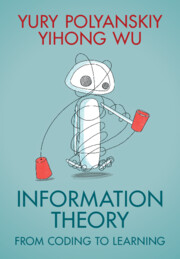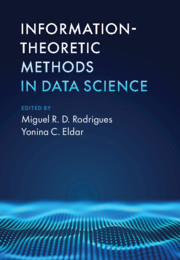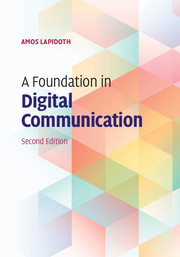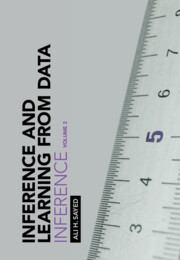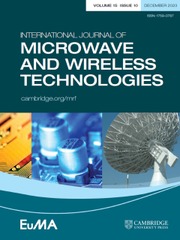Information Theory
This enthusiastic introduction to the fundamentals of information theory builds from classical Shannon theory through to modern applications in statistical learning, equipping students with a uniquely well-rounded and rigorous foundation for further study. Introduces core topics such as data compression, channel coding, and rate-distortion theory using a unique finite block-length approach. With over 210 end-of-part exercises and numerous examples, students are introduced to contemporary applications in statistics, machine learning and modern communication theory. This textbook presents information-theoretic methods with applications in statistical learning and computer science, such as f-divergences, PAC Bayes and variational principle, Kolmogorov's metric entropy, strong data processing inequalities, and entropic upper bounds for statistical estimation. Accompanied by a solutions manual for instructors, and additional standalone chapters on more specialized topics in information theory, this is the ideal introductory textbook for senior undergraduate and graduate students in electrical engineering, statistics, and computer science.
- Provides a systematic treatment of information-theoretic techniques in statistical learning and high-dimensional statistics
- Develops information theory for both continuous and discrete variables providing examples relevant to statistical and machine learning applications
- Focuses on finite block length (non-asymptotic) results, equipping students with information theory knowledge required for modern applications such as 6G and future network design
- Advanced material suitable for skipping on first reading is clearly indicated, enabling a fast introduction to fundamental concepts which can be enhanced with additional material on re-reading
Reviews & endorsements
‘Polyanskiy and Wu’s book treats information theory and various subjects of statistics in a unique ensemble, a striking novelty in the literature. It develops in depth the connections between the two fields, which helps to presenting the theory in a more complete, elegant and transparent way. An exciting and inspiring read for graduate students and researchers.’ Alexandre Tsybakov, CREST-ENSAE, Paris
‘Since the publication of Claude E. Shannon’s A Mathematical Theory of Communication in 1948, information theory has expanded beyond its original focus on reliable transmission and storage of information to applications in statistics, machine learning, computer science, and beyond. This textbook, written by two leading researchers at the intersection of these fields, offers a modern synthesis of both the classical subject matter and these recent developments. It is bound to become a classic reference.’ Maxim Raginsky, University of Illinois, Urbana-Champaign
‘The central role of information theory in data science and machine learning is highlighted in this book, and will be of interest to all researchers in these areas. The authors are two of the leading young information theorists currently active. Their deep understanding of the area is evident in the technical depth of the treatment, which also covers many communication theory-oriented aspects of information theory.’ Venkat Anantharam, University of California, Berkeley
‘Written in a mathematically rigorous yet accessible style, this book offers information-theoretic tools that are indispensable for high-dimensional statistics. It also presents the classic topic of coding theorems in the modern one-shot (finite block-length) approach. To put it briefly, this is the information theory textbook of the new era.’ Shun Watanabe, Tokyo University of Agriculture and Technology
‘This textbook is unique in that it covers many recent developments in information theory related to machine learning. It serves not only as a textbook for information theory but also as a valuable reference for learning theory and data science. This textbook is unique in that it covers many recent developments in information theory related to machine learning. It serves not only as a textbook for information theory but also as a valuable reference for learning theory and data science.’ Jun Chen, McMaster University
‘The book is excellent. One of the landmark texts on IT.’ Masoud Salehi, Northeastern University
Product details
February 2025Hardback
9781108832908
748 pages
261 × 182 × 43 mm
1.78kg
Available
Table of Contents
- Part I. Information measures:
- 1. Entropy
- 2. Divergence
- 3. Mutual information
- 4. Variational characterizations and continuity of information measures
- 5. Extremization of mutual information: capacity saddle point
- 6. Tensorization and information rates
- 7. f-divergences
- 8. Entropy method in combinatorics and geometry
- 9. Random number generators
- Part II. Lossless Data Compression:
- 10. Variable-length compression
- 11. Fixed-length compression and Slepian-Wolf theorem
- 12. Entropy of ergodic processes
- 13. Universal compression
- Part III. Hypothesis Testing and Large Deviations:
- 14. Neyman-Pearson lemma
- 15. Information projection and large deviations
- 16. Hypothesis testing: error exponents
- Part IV. Channel Coding:
- 17. Error correcting codes
- 18. Random and maximal coding
- 19. Channel capacity
- 20. Channels with input constraints. Gaussian channels
- 21. Capacity per unit cost
- 22. Strong converse. Channel dispersion. Error exponents. Finite blocklength
- 23. Channel coding with feedback
- Part V. Rate-distortion Theory and Metric Entropy:
- 24. Rate-distortion theory
- 25. Rate distortion: achievability bounds
- 26. Evaluating rate-distortion function. Lossy Source-Channel separation
- 27. Metric entropy
- Part VI. :
- 28. Basics of statistical decision theory, 29. Classical large-sample asymptotics
- 30. Mutual information method
- 31. Lower bounds via reduction to hypothesis testing, 32. Entropic bounds for statistical estimation
- 33. Strong data processing inequality.

